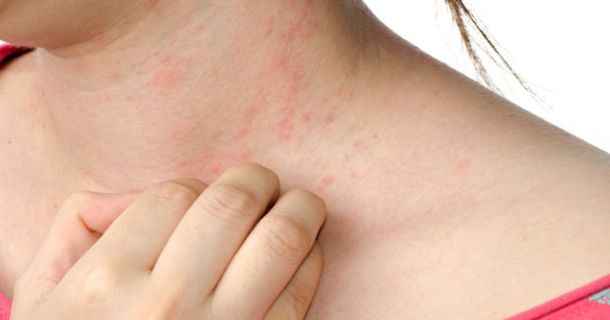Eczema is a complex skin disorder that can manifest for various reasons and produce varying symptoms. Other terms used to describe eczema include: atopic dermatitis, contact-allergic dermatitis and seborrheic dermatitis. If you or a family member has eczema, you may be questioning, “is eczema contagious?” or “what’s the best way to treat eczema?” Read on to learn the myths and facts surrounding this itchy skin condition.
Myth: Eczema is caused by Poor Hygiene.
Eczema is completely unrelated to personal hygiene. It is an autoimmune disorder; however, bathing with harsh soaps or very hot water can dry out the skin and worsen existing eczema. Using skin care products that have dyes, perfumes, sulfates and parabens can cause eczema to flare up.
Myth: Eczema is contagious.
Eczema cannot be spread from person to person by touch, nor can it spread through coughing or sneezing. There is no known cause of eczema; however, it is not contagious and has been identified to possibly have a hereditary factor.
Myth: Topical corticosteroids can cure Eczema.
While topical corticosteroids are commonly used to treat eczema, they can only reduce symptoms or inflammation and have been shown to actually break down the skin barrier; they do not cure eczema completely. Use the treatment prescribed by your doctor and apply skin barrier optimizing moisturizers that replace cholesterol esters and very long chain fatty acids. Use them generously to optimize the skin barrier when undergoing treatment with topical steroids.

Myth: Eczema leaves behind permanent Scars.
In most cases, no. After eczema subsides, traces of lesions may remain for up to a few months but eventually disappear. Excessive scratching and breaking open of the lesions may result in longer-lasting scars. As with any condition that causes you to itch, it is important that you do not scratch at your eczema flare ups. Causing the skin to crack and create open sores and wounds, make you more susceptible to infection such as Staphylococcus aureus.
Fact: Stress may contribute to Eczema.
Because eczema is an autoimmune disorder, stress and other underlying conditions that weaken the immune system can trigger an outbreak. Sleep deprivation may also worsen the symptoms of existing eczema.
Fact: Eczema can be caused by an allergic reaction.
This type of eczema is known as contact dermatitis, triggered when the skin comes into contact with a triggering substance. Skin allergies vary by individual, making it difficult to narrow down a list of allergens. Up to 90% of children with atopic eczema have been shown to have a component of allergic contact dermatitis, in addition, to their atopic eczema. Ask your doctor about skin patch testing to identify your skin allergies. Sudden changes in temperature and humidity can also trigger an outbreak.
Fact: Eczema rashes are prone to bacterial infection.
Ask your doctor about antibacterial skin creams and bath emollients, which have been shown to reduce symptoms of atopic eczema and help prevent rashes from spreading.
Fact: Genetics may increase a person’s risk for eczema.
This type of eczema, also called atopic eczema, can be hereditary much like hay fever and asthma. External factors including stress, dry skin, and contact with irritants can worsen symptoms.
+Dr.Lee Eberting a well respected, board certified dermatologist, has created a vegan, hypoallergenic skin care line that combats skin care issues such as eczema, cracked heels and psoriasis at cherylleemd.com



